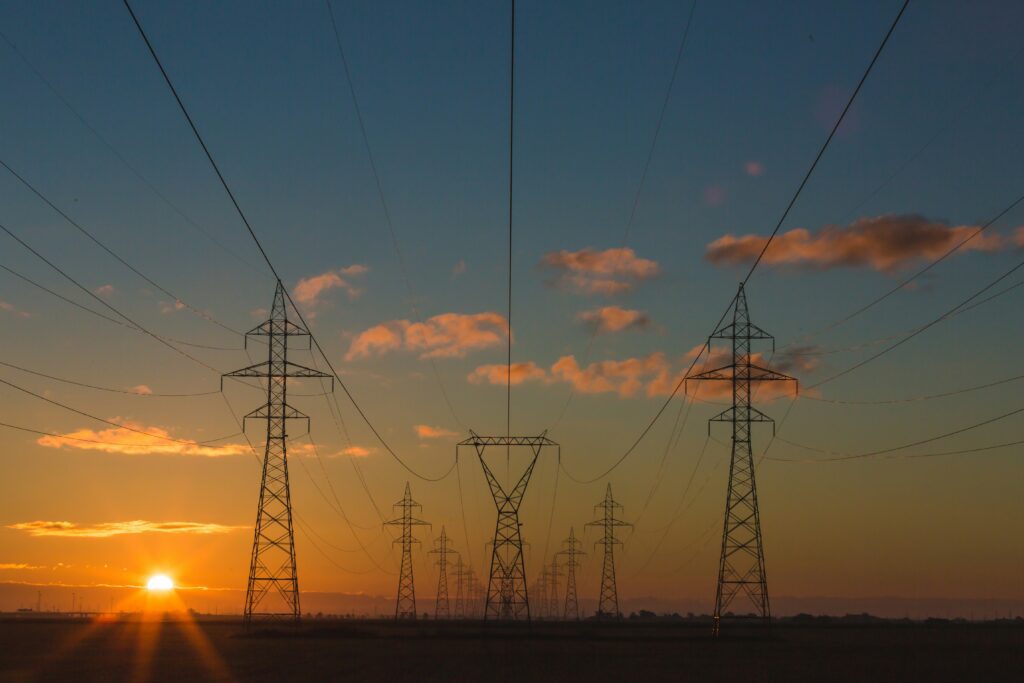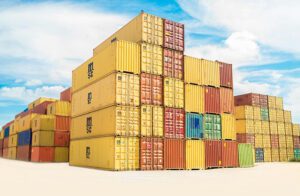Hungary is structuring the EU’s energy policy agenda as they step into the presidency.
Hungary recently took charge of the EU Council, a role that rotates biannually. This position allows the presiding country to influence the EU’s agenda. In the case of Hungary, they will prioritize areas like energy and foreign policy.
Hungary consistently emphasizes geothermal energy, aiming to elevate it to the same level as other EU-supported renewable sources. This focus on geothermal energy and renewables, as well as on Russian foreign policy objectives, marks a notable shift from previous presidencies. Additionally, the threat of economizing and normalizing Russian foreign and energy policy remains a priority. While hopes are high, their agenda is ambitious and faces a difficult path forward.
“There are several reasons for that. First decreasing the dependence on others for energy carriers by local resources, second Carpathian Basin is very rich with geothermal resources”, Philippe Petitpierre, the Chairman/Managing Director of Holdigaz SA, a key player in the Swiss gas industry, told Food and Energy Trends.
Hungary’s EU Council Presidency
An informal meeting of EU energy ministers met in Budapest on July 15-16, focusing on implementing the 2030 energy policy framework. This meeting comes amidst controversy surrounding Hungarian Council President Viktor Orbán’s recent meeting with President Vladimir Putin in Moscow. This development sparked significant debate and led to some EU states boycotting the informal meetings, signaling their disapproval of Orbán’s actions and his recent visits to Russia and China.
There is a concern that Russia may leverage certain countries to disrupt the cohesion of the EU. Hungary faced unequivocal protest from EU and its member states for trying to “parrot Putin’s lines on Ukraine,” according to Politico.
This tactic could be part of a broader Russian strategy to weaken the EU’s collective stance on various geopolitical issues. One of such issues is the EU’s Fossil Fuel Phaseout strategy, that would phase out “coal no later than 2030, fossil gas no later than 2035 and oil at the latest by 2040.”
Hungary’s Agenda and Priorities
In a recent interview with Contexte, the Hungarian Energy Minister Csaba Lantos outlined his vision for energy independence and climate objectives. He emphasized a move away from “ideological reasoning” in energy policy, suggesting that certain EU countries will continue to need Russian gas imports in the long term.
Anton Kuchukhidze, co-founder of the United Ukraine think tank, told Food and Energy Trends that “Hungary’s actions might be aimed at securing additional funds from Brussels. By taking controversial stances, Hungary could be positioning itself to negotiate for more financial support or concessions from the EU.”
Meanwhile, energy policy remains a crucial focus for Hungary, particularly with Rosatom continuing the construction of two VVER reactors with capacity of 1.2 gigawatts each, in addition to the currently working four reactors. Keeping this project free from sanctions is seen as a vital strategic priority for Hungary.
Controversies and Political Dynamics
Hungary’s prioritization of geothermal energy is a key aspect of its current Presidency at the EU Council. For Hungary, geothermal energy offers numerous benefits, including a consistent energy supply and low emissions. Hungary’s goal is to raise the profile of geothermal energy as a legitimate topic within the EU, advocating for it to be considered alongside more traditionally encouraged renewable sources like solar and wind power. This ambition is not without challenges.
EU foreign ministers, quietly led by the EU’s foreign policy chief Joseph Borell, are set to assess their response to Hungarian Prime Minister Viktor Orbán’s recent visits to Russia and China, as well as Hungary’s stance on the EU’s involvement in Ukraine.
Despite Hungary’s dependance on energy imports from Russia and its overall close relationship, the financial support it receives from the EU significantly outweighs what Russia can offer. Last year, Hungary benefited from 15 billion EUR in various EU aid packages, and some analysts see it as a result of effective bargaining with the EU on controversial issues like Ukraine aid.
It is important, however, to add Hungary’s initiatives for diversification of energy exports.
Diversification of Exports
For instance, Hungary and Qatar solidified their gas purchase agreement. This made Hungary set to receive liquefied natural gas (LNG) from Qatar beginning in 2027. Hungary is keen on increasing imports of Azerbaijani gas, where, according to Hungarian Foreign and Trade Minister Péter Szijjártó, the country will receive a 1 bn cubic meters of gas from Azerbaijan in 2024, and could receive twice as much. Hungary has focused on new import routes, for example, from the Romanian Neptun Deep natural gas field and from the Azeri Shah Deniz 2 gas fields. In addition, Hungary also reached an agreement with Turkey for natural gas.
This extensive diversification agenda coupled with the implication of EU strategy of energy independence raises the question of how valid Hungary’s claims are on indispensability of energy imports from Russia. It also calls into question Orban’s political agenda to justify his close-knit relationship with Russia.
“Considering the time left for transporting Russian gas through Ukraine it does not seem very likely that Hungary will be able to receive Russian gas by traditional means”, Petitpierre said. It is highly likely that the gas transported to Turkey through “TurkStream ” and “BlueStream ” alongside the above-mentioned sources will find its way to the Hungarian market”.
Changing Impact
As seen from Ukraine, Hungary’s rationale for such controversial stances within the EU vis-à-vis Russia was a rather lucrative behavior: “Hungary did not block the EU’s negotiations on Ukraine’s membership or on the allocation of 50 billion euros in aid to Ukraine recently. All this secured a generous 15bn eur EU funds to Hungary itself. Of course, Russia couldn’t offer so much to Hungary under any circumstances in any form,” says Anton Kuchukhidze from the United Ukraine think tank.
It’s important to note the release of frozen funds by the Commission to Hungary back in December 2023. The money released was part of a sum withheld by the Commission due to Hungary violating “ rule of law principles,” particularly with regard to judicial independence. EU lawmakers has brought their suspicion of the EU Court of Justice the fact that the funds were released at the same time Hungary was blocking EU council unanimity on opening Ukraine’s accession talks and further financial support for Kyiv.
It seems that the decision was used as political leverage rather than any reforms taking place in Hungary.
“Securing Hungary’s vote on Ukraine was critical for maintaining a unified EU stance. Orbán’s government had previously shown reluctance to fully support EU sanctions against Russia, making Hungary’s vote pivotal in demonstrating European solidarity”, says Petitpierre . “While the Hungarian government may have viewed the release of funds as a victory, it also highlighted the limits of Orbán’s ability to resist EU pressure. The necessity of securing these funds underscored Hungary’s reliance on EU financial support and the constraints this imposes on its foreign policy autonomy.”
Geothermal Energy as a Priority
The recent meeting between Orbán and Putin further complicated Hungary’s presidency. Critics argue that this meeting undermined the EU’s collective stance on Russia, particularly in light of ongoing geopolitical tensions. The boycotts by some EU states reflect a broader unease about Hungary’s direction and its potential impact on the EU’s energy and foreign policy.
More specifically, it was announced the week before that Finland, Estonia, Latvia, Lithuania, Poland, and Sweden will boycott government meetings associated with Hungary’s EU presidency this month, as a demonstration against Orbán’s meeting with Russian President Vladimir Putin.
Viktor Orbán, has accused the EU Commission of selective participation after it announced that commissioners would not attend informal meetings organized by Hungary’s presidency, effectively downgrading the EU executive body’s involvement.
This move comes amidst complaints from several EU countries about the Commission’s decision to boycott the Hungarian presidency, announced just days before a crucial vote to re-appoint Ursula von der Leyen as its chief.
All in all, Hungary seems to be pushing a spiraling conflict around the issue of its EU Council Presidency and key issue of geothermal energy.
Conclusion
The gas supply issue is pushed by Hungary back into the EU agenda despite significant diversification efforts undertaken by the bloc with the view to reducing dependency on Russian gas.
“Even if Hungary sought to reintroduce Russian gas into the agenda, logistical challenges remain, particularly regarding transportation through Ukraine. The EU’s annual gas imports from Russia have dropped from 165 billion cubic meters before the invasion to just 7 billion in 2023, diminishing Russia’s leverage”, concludes co-founder of United Ukraine think tank Anton Kuchukhidze.
The EU clarified that Hungarian Prime Minister Viktor Orbán’s recent visit to Russia was not authorized by the EU.
“Prime Minister Viktor Orbán’s visit to Moscow takes place, exclusively, in the framework of the bilateral relations between Hungary and Russia,” said Joseph Borrel’s press office in a statement.
This distinction shows the EU’s disapproval and aims to maintain a unified stance on foreign policy matters.
“The outcomes of Hungary’s presidency will unlikely have lasting implications for the EU’s energy landscape, possibly resulting in more financial benefits for Hungary from the EU”, concluded Kuchukhidze.
Hungary’s rational yet controversial stance during its EU Council’s Presidency, not only brings a sense of ambiguity into the heart of European politics, but also further fuels the Kremlin’s own propaganda needs.
Reporting by Viktoriya Zakrevskaya in Zurich














